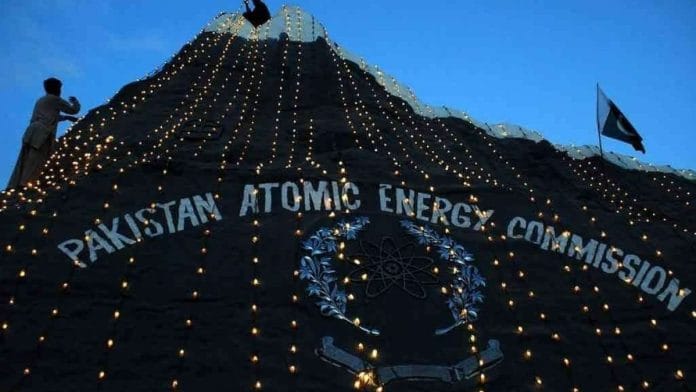New Delhi: The recent abduction of 17 civilian workers from the Pakistan Atomic Energy Commission or PAEC last week has triggered a political controversy in Pakistan. Many citizens suspect it to be an ISI ploy to direct US attention toward TTP, a problem that Pakistan can no longer contain.
“If a State can’t protect its officials linked to the nuclear programme, how can the world trust it to secure its nukes? The stakes are far too high for such incompetence,” X user Aroofa Rasheed wrote.
Meanwhile, ministers in Pakistan have also accused India of exploiting the crisis to undermine the country’s nuclear security.
Jan Achakzai, Balochistan’s Minister for Information and Public Relations, accused India of using the kidnapping case to fuel anti-Pakistan narratives. In a long X post, he claimed that Indian social media accounts, allegedly backed by the Indian intelligence agency R&AW, were glorifying the TTP’s actions and spreading misinformation about Pakistan’s nuclear vulnerabilities.
“Indian social media accounts, supported by RAW, are exploiting this incident to spread false propaganda targeting Pakistan’s nuclear program. These RAW agents on social media are glorifying the heinous acts of Fitna al Khawarij TTP in an attempt to tarnish Pakistan’s image,” he wrote.
However, experts disagree.
“The Pakistan military is failing its people. It prioritizes politics, power, and securing a larger budget over addressing genuine security concerns. It has utterly failed to protect its citizens and now shifts blame to neighbors,” security analyst Aziz Amin wrote on X.
There are several conspiracy theories too.
Analysts on X suggested that the kidnapping could be a “false flag” operation orchestrated by Pakistan’s own Inter-Services Intelligence (ISI).
“The ISI reportedly staged this operation to frame the TTP for collaborating with Iran to smuggle enriched uranium, which could potentially be used to develop a nuclear bomb. By doing so, the ISI aims to secure financial support from the US and Israel, positioning itself as a key ally in any potential future conflict against Iran,” analyst Adil Raja wrote.
Also read: ISPR to get PKR 2 bn to fight fake news. Pakistanis call Army wing factory of misinformation
Abductions and allegations
The Tehrik-i-Taliban Pakistan (TTP) reportedly attacked 17 PAEC workers in the violence-prone Lakki Marwat district of Khyber Pakhtunkhwa on 9 January, when they were traveling to a mining project in Qabul khel in the KPK region.
Shortly after the attack, the TTP purportedly released a video showing the abducted men pleading with the government to meet the militants’ demands for their safe release. However, local and international news reports have not been able to verify the videos as of now.
Soon after, local media reported that the hostages had been rescued.
However, in another video doing the rounds on social media, the TTP called for the release of detained militants, the freedom of their family members, compensation for demolished homes, and the return of the bodies of slain fighters. In exchange, they promised to free the remaining hostages.
In the video, an abductee can be seen talking about the demands of the kidnappers. “Today is our third day in captivity. The news of our release is not true as 10 workers are still in custody,” he said as quoted in Dawn.
The PAEC is tasked with promoting peaceful uses of nuclear energy, including research in agriculture, medicine, and power generation. As news of the kidnapping spread, many on social media saw the threat to PAEC employees as a direct challenge to Pakistan’s strategic assets.
“TTP’s hostage crisis isn’t just about nine individuals—it’s a stark symbol of Pakistan’s growing security void. What happened to the “comprehensive operations” against terrorism? Silence from the state speaks louder than words,” X user Afet Kaya wrote.
Pakistan, Afghanistan and the TTP
Lakki Marwat has long been a hotbed of TTP activity, and the region has witnessed an increase in militant violence since 2022 after the TTP broke a ceasefire agreement with the government. The group has increasingly targeted security forces and government officials, emboldened by the instability in neighbouring Afghanistan, where many TTP leaders are believed to have found sanctuary.
The kidnapping occurred just days after a separate attack in southwestern Balochistan, where separatist militants briefly seized a government office, robbed a bank, and vandalised a police station. The outlawed Baloch Liberation Army (BLA) claimed responsibility for the Balochistan attack.






